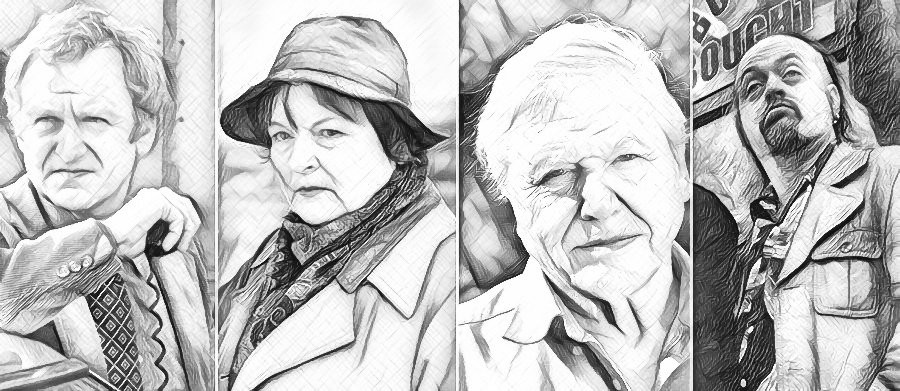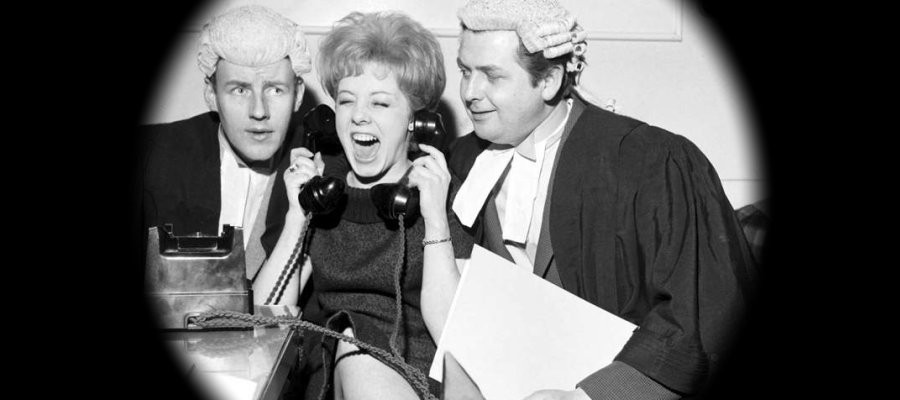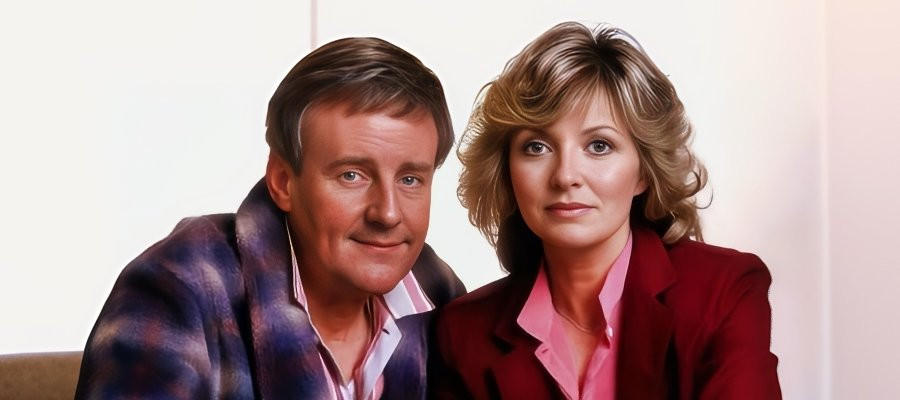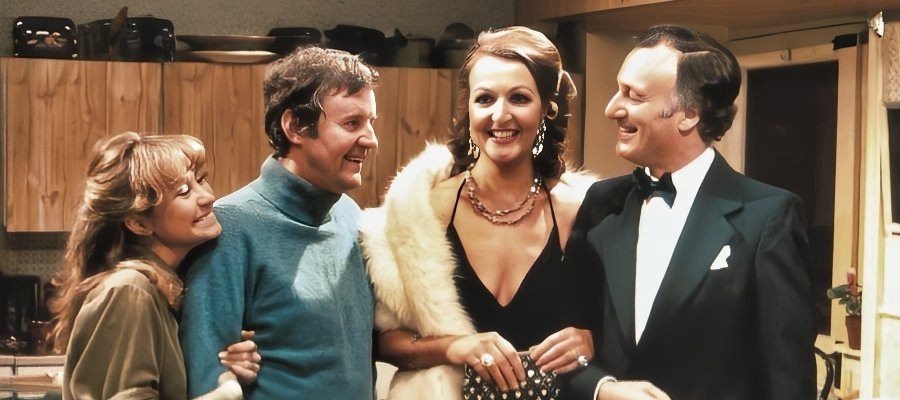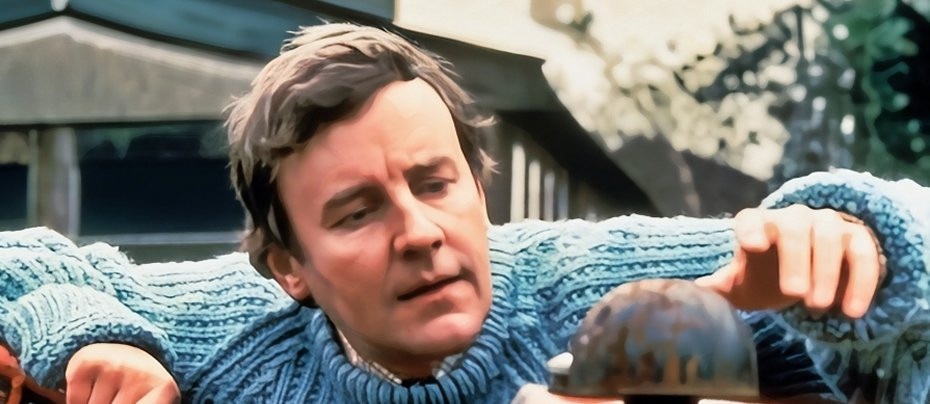
Richard Briers
Denise Lovell pays tribute to a National Treasure
Despite being associated with 3 of Britain's most successful sitcoms - Marriage Lines in the 60s, The Good Life in the 70s and Ever Decreasing Circles in the 80s - Richard Briers never considered himself to be principally a TV comedy actor. Even a cursory glance at the list of stage, screen and television work he was associated with would confirm this, things as diverse as Ayckbourn, Doctor Who, Shakespeare and Monarch of the Glen reveal a talented and versatile actor who had never been out of work throughout his long career.
Richard David Briers was born on 14 January 1934 in Raynes Park, London. His father Joe drifted from job to job, having about 80 over the course of his life. His mother Morna was a talented pianist who had unfulfilled ambitions of being in show business but instead stayed at home to raise Richard and his younger sister Jane, later to become an actress and drama teacher.
He remembered an early interest in acting. "I was about eight when I started reading aloud in the kitchen because it had an echo which made me sound rather good, so the ego was already in place." The family lived near a cinema called the Rialto and at night the voices of actors such as Bogart and Cagney came into his room.
He didn't enjoy school, where the only thing he really excelled at was entertaining his classmates with imitations of the teachers. At fourteen he became involved in amateur dramatics but was asked to leave by the leader of the group as he spoke so quickly that no-one could understand him.
When he left school at 16 he had a series of dead-end jobs before a two-year stint as a filing clerk. This was followed by 2 years in the RAF for his National Service doing the same kind of job. During this time he again pursued his interest in acting, prompting his cousin, the actor Terry-Thomas, to suggest he audition for RADA.
"I took an audition and just literally got a passmark because in those days you got marks out of 100 and I got 62 per cent. I was very, very, very nervous but elated because I felt I was in the right place, trying to be an actor." He trained alongside future stars such as Albert Finney and Peter O'Toole. He soon found he had a lot to learn. "I knew absolutely nothing about acting, and had to be taught everything. Some people are born naturals and know how to walk, talk and hold themselves. I didn't and had to learn everything."
At the end of his time at RADA he won the Silver Medal and a scholarship with the Liverpool Repertory Company. The discipline and experience he gained from his time there proved invaluable, allowing him to perfect his acting style and conquer his nerves. It was here that he met his future wife, Ann Davies, who was working as a stage manager. They were married within 6 months and had 2 daughters, Lucy and Kate.
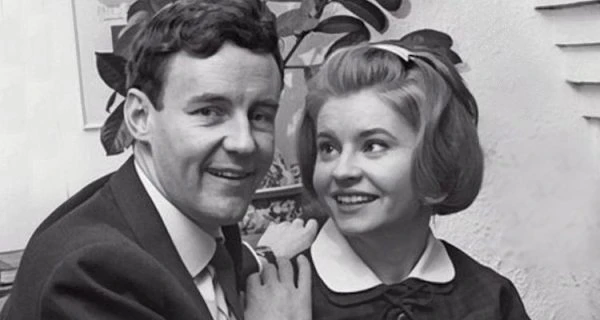
Richard made his West End debut in 1958 in a play called Gilt and Gingerbread. After several minor roles on television his first real break came in 1962 with the series Brothers in Law in which he played a young barrister. The following year he starred alongside Prunella Scales in Marriage Lines. This popular series about the lives of a newlywed couple eventually ran for 45 episodes. He continued to combine theatre, most notably in the plays of Alan Ayckbourn, with film and television work until, in 1975, he was approached with the offer of a new sitcom. John Esmonde and Bob Larbey had written the part with him in mind, Tom Good in The Good Life. Although he liked the script, he thought about the offer carefully, unsure whether he wanted to take on another television role when his ambitions still lay in the theatre. In the end, having a family to support swayed his decision - Shakespeare didn't bring in enough to pay the bills.
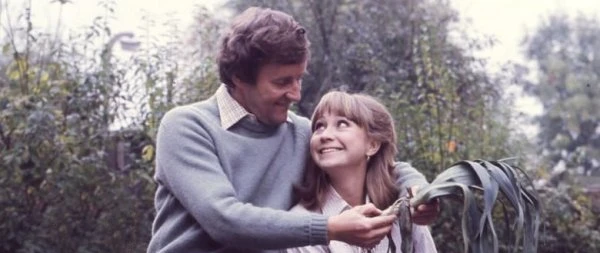
Richard had some say in the casting and he approached Felicity Kendal, then starring in Ayckbourn's The Norman Conquests, to see if she would be interested in playing the part of Barbara, Tom's wife. Paul Eddington and Penelope Keith as the Good's long-suffering neighbours, Margot and Jerry, completed the cast. Richard wasn't entirely convinced that the story of a man opting out of the rat-race to try self-sufficiency in Surbiton would be popular enough outside the south of England, but it became a huge success. Although probably his most famous and best-loved character he admitted to finding Tom Good incredibly selfish. "I didn't like Tom at all. I certainly wouldn't like to live next door to him - I'd be like Penelope Keith and clear out. This awful excessive man getting up at five in the morning to do his goats and things."
More television work followed including another series written by Esmonde and Larbey, The Other One, which co-starred Michael Gambon. This was not a success, but in 1984 they hit gold once more with Ever Decreasing Circles. The part of the obsessively organised Martin Bryce was again written with Richard in mind as it was felt that only he could make such an essentially unsympathetic character funny.
The contrast between the tightly-wound busybody Martin and his new neighbour Paul Ryman (Peter Egan) provides the basis for most of the comedy. Paul is handsome, successful and easy-going and much to Martin's annoyance quickly becomes popular in the neighbourhood. Like Tom Good, Martin also has a wife who suffers because of her husband's obsessions, Ann, played by Penelope Wilton. Ever Decreasing Circles ran for 4 series and ended in 1989 with an 80 minute special.
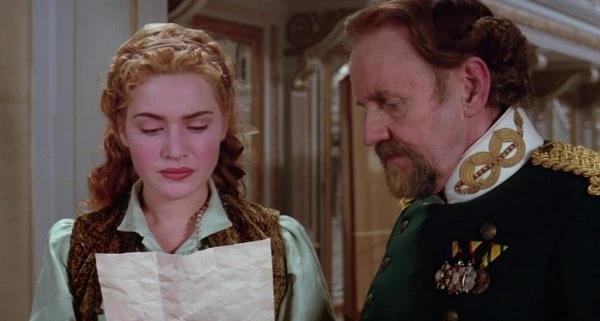
Around this time Richard was offered the chance to join Kenneth Branagh's Renaissance Theatre Company. "Ken offered me Malvolio in Twelfth Night at the very time I had decided to expand my career when I realised I had gone as far as I could doing sitcoms. As soon as I worked with him, I thought he was truly exceptional." Roles in Coriolanus, Uncle Vanya and King Lear followed and he also appeared in 5 of Branagh's films including Frankenstein, alongside Robert De Niro.
He returned to TV for another successful series in 2000, not a sitcom this time but a cosy drama about a Scottish laird and his family called Monarch of the Glen. He stayed for 3 series until the strain of being away on location in the Highlands for months at a time became too much and he decided to leave. Following that he was seen on TV in Dad, a poignant one-off drama that highlighted the problems associated with getting old, and Our Hidden Lives, as a lonely man obsessed with prime numbers. Although in his later years he made sure he had time to spend with his family, especially his grandchildren Henry and Rachael, Richard Briers was still as much in demand as ever and continued to bring pleasure to the viewing public.
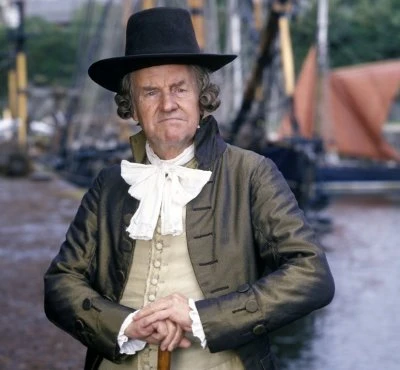
Briers was diagnosed with emphysema in 2007. In an interview with the Daily Mail in January 2013, Briers stated that he had smoked about half a million cigarettes before he quit. A few weeks later he died at his home in London (17 February 2013) following a cardiac arrest. The BBC referred to him as "one of Britain's best-loved actors" and tributes poured in from fans and colleagues. Sir Kenneth Branagh paid tribute to him, saying, "He was a national treasure, a great actor and a wonderful man. He was greatly loved and he will be deeply missed."
Published on August 10th, 2024. Written by Denise Lovell (2017) for Television Heaven.


